Drug policy and feminist movements have rarely been connected - but they should be.
Over the past two years, AWID has been working closely with communities of women who use drugs to build solidarity and learn from each other. We learned several things through this process. The war on drugs is clearly a feminist issue because it disproportionately affects historically oppressed groups already at a higher risk of violence and repression. It is critical for feminist movements to understand the gendered, racial and class aspects of repressive drug policies, including the criminalization and stigmatization of people who use drugs. We also need to do more to build solidarity and connections with drug policy and harm reduction movements.
Our new report “Feminist movements and women resisting the war on drugs” documents our experience of how feminists can learn from, support and engage with communities of women who use drugs.
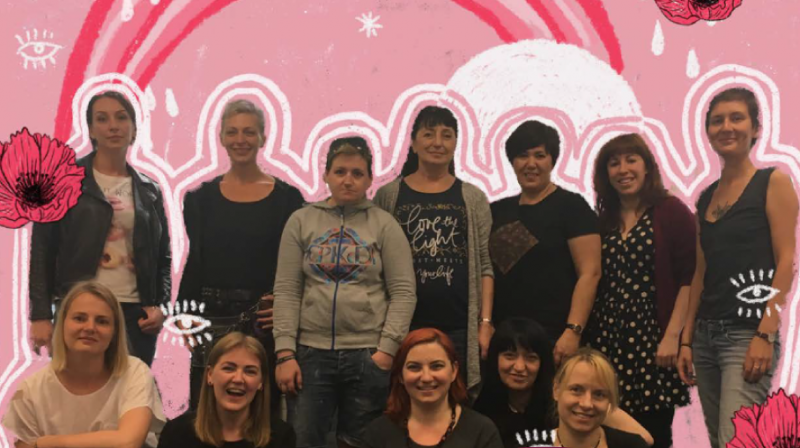
What a world without the war on drugs would look like
The article below brings together writers from across different movements and regions. We asked each of them to reflect on what a world beyond the war on drugs would look like in the contexts they work and live in. Imagining a world beyond the war on drugs visibilises the hugely destructive impact the war on drugs has on communities around the world and encourages us to start reimagining a world beyond stigma, criminalisation, incarceration and violence. The contributions below bring perspectives from Indigenous and other communities using psychoactive plants for healing purposes, workers who cultivate and harvest illegalised crops, Black feminists who organise against the prison system and criminalisation, and women who explore pleasure and cognitive autonomy through using drugs. All of these communities are impacted by repressive drug policies in different ways, but all of them also know that to achieve justice, we need to see an end to the war on drugs.
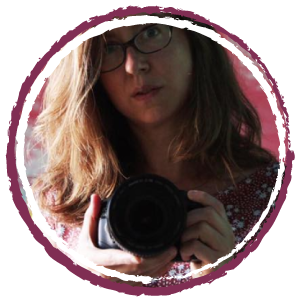
Constanza Sánchez
The International Center for Ethnobotanical Education, Research, and Service (ICEERS) / Barcelona
A world in which prohibition and criminalization do not further accentuate inequalities, in which peasant communities dedicated to cultivate (previously declared) illicit crops do not see their crops fumigated, are not forced to eradicate them or to move away from their lands. A world where cultivation of cannabis, coca leaf and opium poppy is a decent and feasible way of life in those regions where these crops have been grown for centuries, guaranteeing the survival and access to land of these communities. A world in which indigenous communities are not forced to get involved in drug production or trade by violent armed groups, their demands and wisdom are heard around the world, and their leaders are respected and not threatened or murdered.
A world in which nobody is arrested or prosecuted for using psychoactive plants-based traditional medicines, like ayahuasca, or for the traditional use of peyote or San Pedro, either in their native contexts or beyond. A world in which traditional healers are able to expand their knowledge and healing practices to other corners of the world. Where migrant communities can traditionally use khat or coca leaf -which are important cohesion tools in their own societies- without being stigmatized or criminalized.
A world beyond the war on drugs would obviously not be a perfect world, but we would have freed ourselves from one of the greatest obstacles to achieve higher levels of social equality and environmental justice in contemporary times.
Constanza Sánchez Avilés is the Law, Policy and Human Rights director at ICEERS. She is a political scientist and holds a PhD in International Relations and International Law. Her work focuses on the intersection between human rights and drug control. She is based in Barcelona and works with indigenous and other communities mostly in the Global South. Find her on Twitter @constaviles.
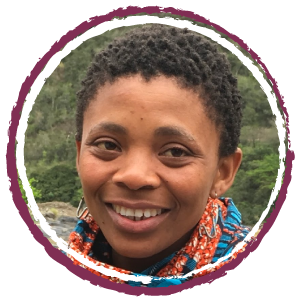
Philasande Mahlakata
uMziMvubu Farmers Support Network (UFSN) / Mpondoland, South Africa
Mpondoland is one of the world’s greatest Cannabis cultivating communities. The plant has been used as medicine and for the purpose of divining for hundreds of years, dating as far back as our forefathers can remember. Migrant labor in Southern Africa began in the 18th century. Men in rural communities all around the country would leave home to work in mines, leaving behind women and children to fend for themselves.
As laws tightened and prohibitions on any use of the plant became more stringent, it was these women who had their homes raided in the middle of the night and had the very little money they had made from the harvests confiscated by the police as bribes. In some cases, they were even incarcerated. The war on drugs has taken mothers away from their children, and has stolen the chance for children to grow up with the full attention of their parents. In the case of Cannabis wars, it has often taken away income from homes. The war on drugs has contributed greatly to the rise of poverty in most of these communities. Forced fumigation of the Cannabis fields in Mpondoland and Zululand has been one of the major terrors to have been enforced onto these communities through this war on drugs. An end to this act would bring about a real change for these communities.
Philasande Mahlakata is the Project Coordinator for UFSN based in Mpondoland in the Eastern Cape province of South Africa. The network currently sits on the provincial government initiated steering committee for the development of the Cannabis industry. Philasande is also the chairperson for an essential oils producing & agro-processing cooperative Umfaz’onengxolo Cultural Hub. She recently spoke at the first ever South African Cannabis Summit organized by the Premier of the Eastern Cape Province.
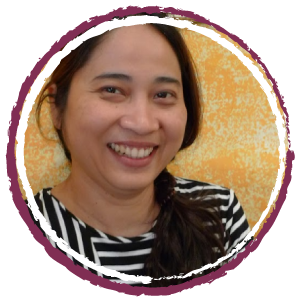
Nang Pann Ei Kham
Drug Policy Advocacy Group (DPAG) / Myanmar
Opium has been cultivated in Myanmar for several generations by diverse ethnic communities in the mountains. Most of them are subsistence farmers and grow opium as a cash crop to buy food and essential household needs. Opium is used as a medicine to treat pain, cough and diarrhea. There are also recreational and cultural uses, and in some communities, it is offered to guests at weddings and funerals. They also practice customary systems to manage their land and natural resources.
Current laws in Myanmar against opium cultivation and use are strict. Both growers and users are criminalised and face long jail terms. In addition, poppy fields are destroyed by government eradication teams, without providing any alternatives to farmers. Current laws do not recognise customary systems.
It would end the criminalisation and demonization of ethnic communities involved in poppy cultivation. It would provide opportunities to engage with them about how they would like to develop their areas, while recognising and preserving their culture and traditions.
Nang Pann Ei Kham is from Myanmar (formerly called Burma). She is the coordinator of the Drug Policy Advocacy Group (DPAG), a network of like-minded organizations calling for health, development and rights focused drug policy reform in Myanmar and Asia region.
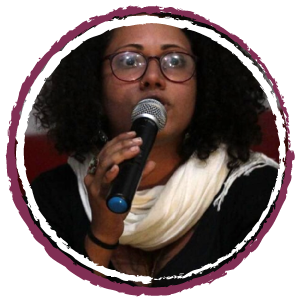
Ingrid Farias & Waneskia Viana
The war on drugs is instrumentalized by institutional racism as a war on people who use drugs, on specific people only. This war is not symmetrical; it is a lens through which various other wars are fought, against social groups who suffer disproportionately from the impacts and harms of this war. Although the “war on drugs” language and framing misleadingly present it as a tool to punish all people equally. Given this, it is necessary to rethink legal models for dealing with the phenomenon of drug use.
It is urgent to develop successful experiences of care through harm reduction, and to strengthen policies that oppose violence against our communities. Black youth and women need to be the protagonists in the construction of the new model of drug policy, along with our communities that have been debating and building collective alternatives to the infamous war on drugs.
Ingrid Assunção Farias is a Black anti-prohibitionist feminist, writer and researcher. She is a Social Accelerator and Coordinator of the National Network of Anti-Prohibitionist Feminists, and also a member of the Latin American Network of People who Use Drugs. Find RENFA on Twitter.
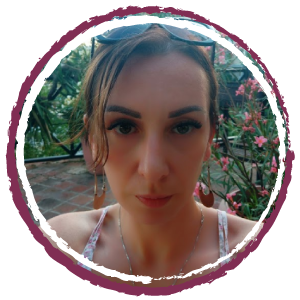
Alla Bessonova
Narkofeminist Movement / Eastern Europe & Central Asia Region
When I think of a world without a war on drugs, I imagine the people I love and I smile. Yet, the reality in which I live can hardly make me smile. At 23, I was already on the edge of this life. Indifference and alienation: that is what I felt from all the people who surrounded me then. Only my dog waited for me and loved me. He was always there and saved me several times during a heroin overdose. Just think for a second how much this whole world and this whole system is against you. Against a woman who uses drugs. When nobody needs you, except a dog.
These were years of darkness. And then I met people like me. People who used drugs and went against this system and helped each other. And I stayed with them.
Until now, attitudes towards women who use drugs are very negative. The understanding that we ourselves can choose a lifestyle that is comfortable for us does not fit into the heads of our society. It is so difficult to change this desire of society for war and blood. But I changed my whole life not because of social reprimands, or the anti-drug laws, or prison, or the war on drugs.
This will not make me a worse woman or mom. And I am pleased to break the stereotypes and ideas of people about us, psychonauts [people who explore the psyche through the use of hallucinogens or other techniques]. On my drug journey I met so many amazing women. Beautiful and strong, women who inspire me. I will continue to dream about the world of legalization, about the world of freedom and love.
Alla Bessonova is an activist from Kyrgyzstan, actively involved in the narcofeminist movement in the Eastern Europe & Central Asia region. She says about herself: “I started using drugs in 1997. Back then we did not know anything about overdoses and harm reduction. We used and learned on our own how to do everything correctly and safely. It was hard. After 7 years, I was tired of using heroin. My path into activism began 13 years ago. Now I know what is right and I will continue to fight for the rights of women who use drugs.”
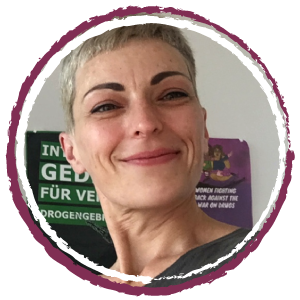
Olga Belyaeva
Narkofeminist Movement / Eastern Europe & Central Asia Region
Get high and never die :)
Psychoactive substances reveal the potential of my life. LSD, cannabis, opium, each substance in its own way help me to walk on the path, providing the opportunity to enjoy my world, body, and way of life.
For women, there is one demand from society that tries to tell us how to live: you should not enjoy life. In 1995, I was 22 years old. I stood near the doctor’s office, in a closed psychiatric ward. I heard the doctor tell my mother, who was looking for a magical sober life for her youngest daughter: “We will punch a hole in your daughter’s head and freeze the center of pleasure.” Doctors could carry out an operation on a person who uses psychoactive substances without their consent, and with total impunity. I was never seriously asked to consent to my body being experimented on. “Run, Olya! Run "!!!
We strive for substance regulation under community leadership. Market prices and production would be in the hands of a community of connoisseurs of these substances. Like with other products: food, drink, clothing - produced by people who appreciate them. In this world, I can grow beautiful grass, and create a place where adults can consciously decide to join the world of psychonauts. Legal regulation of substances assists us in traveling between worlds and experiencing enjoyment, revealing their potential and helping others live in harmony with divine nature. A world in which there is an opportunity to Defrost the Pleasure Center :)
Olga Belyaeva is a narcofeminist activist from Ukraine. For over 30 years she has been using psychoactive substances to enhance her potential and creativity. She is actively involved in the narcofeminist movement through the Eurasian Network of People who Use Drugs (ENPUD). Currently, Olga works at the Eurasian Harm Reduction Association (EHRA) and is engaged in community strengthening and movement building around drug policy reform.
